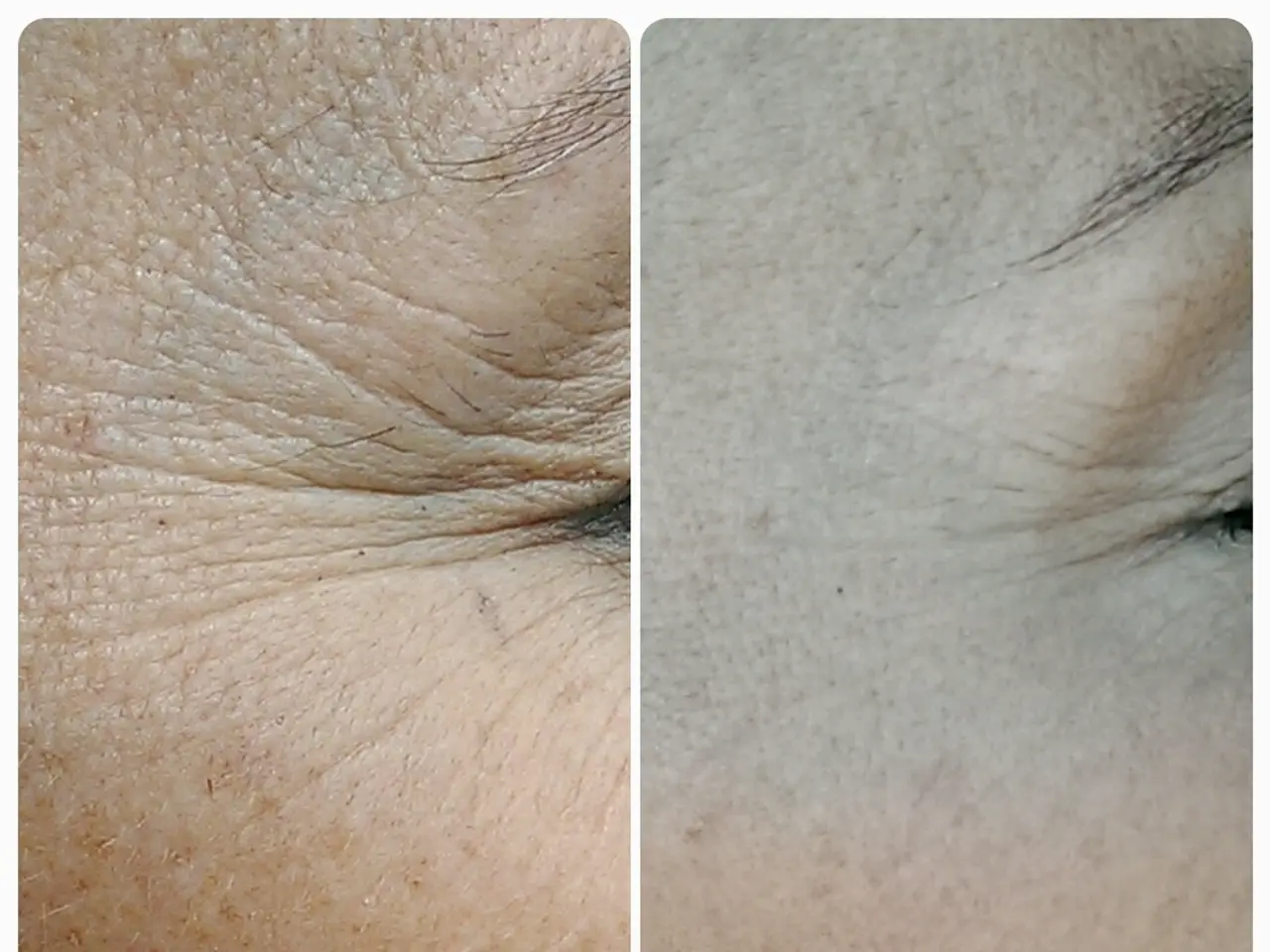Treatment Options for Acne Varying by Type, with Emphasis on Sulfur
Sulfur, a well-established ingredient in skincare, offers a range of benefits for those battling acne. With its anti-inflammatory, antibacterial, and anti-redness properties, sulfur is an effective solution for treating different types of acne, from mild to moderate[1][2][4].
### The Benefits of Sulfur for Acne
Sulfur's anti-inflammatory properties help soothe red, irritated pimples and reduce inflammation[1][4]. Its antibacterial qualities kill acne-causing bacteria, reducing breakouts[1][2]. Moreover, sulfur can help absorb excess oil, reducing clogged pores and eliminating blemishes[2].
### Using Sulfur for Acne Treatment
For mild to moderate acne, sulfur works well as a spot treatment or in face washes, helping to calm inflammation and redness[4]. In more severe cases, sulfur is often part of combination therapies, such as with salicylic acid or peptides, to enhance antibacterial effects and potency[1][3].
Sulfur products, typically containing 6-10% sulfur, are ideal for spot treatment, quickly addressing red and inflamed lesions[2][3]. To achieve optimal results, apply sulfur directly on lesions using a clean cotton swab, let it dry fully before applying any other skincare, and use as needed, usually once or twice daily, depending on skin tolerance[2].
### Potential Side Effects and Cautions
While sulfur is generally well-tolerated, dryness and peeling can occur, especially if used too frequently or on sensitive skin[2]. Mild irritation or redness may also be experienced, though this is generally less severe than with some other acne treatments. To avoid excessive dryness or sensitivity, avoid overuse.
It's essential to note that sulfur may not be suitable for those with very sensitive skin or a known allergy to sulfur products[2]. A patch test should be conducted before using any new sulfur product on the skin.
### Combining Sulfur with Other Acne-Fighting Ingredients
Sulfur's efficacy is enhanced when used in combination with other acne-fighters like salicylic acid or peptides, promoting faster and more effective results against both inflamed and non-inflamed acne[1][3]. Products combining sulfur with benzoyl peroxide or sodium sulfacetamide may work better than sulfur alone.
### Sulfur and Acne Scars
Acne scars can be challenging to treat, and sulfur may work for very light scarring, but most acne scars will require more intense treatments[5].
In conclusion, sulfur is a versatile, effective ingredient for treating various acne types when used properly as a spot treatment or in combination with other acne therapies, balancing effectiveness with minimal side effects. As always, anyone interested in sulfur for acne treatment should consult a pharmacist, doctor, or dermatologist.
[1] https://www.ncbi.nlm.nih.gov/pmc/articles/PMC3160273/ [2] https://www.aad.org/public/diseases/acne-and-rosacea/treatment/over-the-counter/sulfur [3] https://www.ncbi.nlm.nih.gov/pmc/articles/PMC6049372/ [4] https://www.ncbi.nlm.nih.gov/pmc/articles/PMC4114789/ [5] https://www.aad.org/public/diseases/acne-and-rosacea/treatment/acne-scars/overview
Sulfur, with its roots in dermatology and backed by science, is a valuable ingredient in health-and-wellness skin-care products, particularly for those dealing with acne. The science behind sulfur's benefits includes its anti-inflammatory, antibacterial, and skin-clearing properties, making it a key component in many acne treatments.




